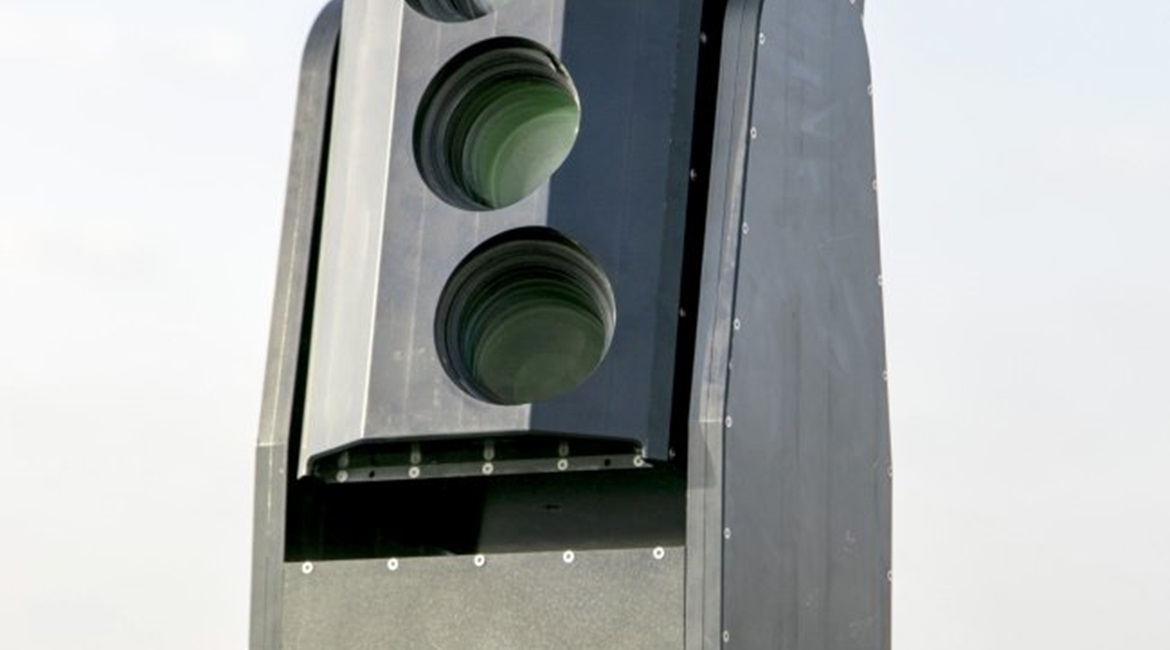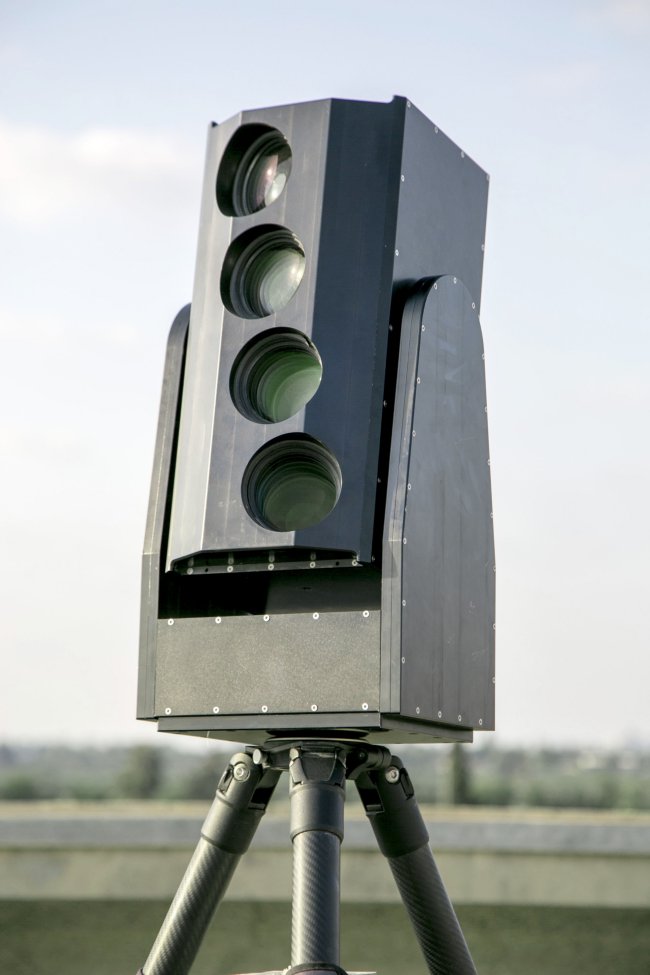
Israel Aerospace Industries (IAI) unveiled a new electro-optical system called POPSTAR, which is capable of detecting small unmanned aerial vehicles (UAVs), at the DSEI 2019 defence show held in London from 10–13 September.

The POPSTAR sensor unit can be mounted on a tripod or a vehicle. (Israel Aerospace Industries)
A member of IAI’s Plug-in Optronic Payload (POP) family, POPSTAR is designed for both military uses, such as border surveillance and protecting civilian sites such as airports. It consists of an electro-optical system that can be mounted on a tripod or vehicle and rotates to scan an assigned sector to detect and then track flying objects.
Its software is designed to classify the objects and calculate their precise azimuth and range, presenting this information to the operator using a panoramic display that shows the complete field of view. IAI says detection ranges vary from 6–10 km depending on local conditions.
Alex Riahi, from the Land Optronics business unit at IAI’s Tamam Division, told reporters that the system was unveiled after an advanced operational demonstration phase. “Until now, optical systems were about zooming in, and the further one looked, the more they saw through a straw,” he said. “We decided to break this concept and developed a system that can detect and identify objects of all sorts of sizes and ranges, but still maintain a very wide field of view. The system can acquire any threat from 60 to 15 degrees [in elevation], it turns according to the need to identify threats.”
POPSTAR uses a panoramic display to give its operators a wide field of view. (Israel Aerospace Industries)
Riahi mentioned that threats such as multirotor UAVs and balloons carrying incendiary or explosive devices as being “very relevant” threats.
Looking to read the full article?
Gain unlimited access to Janes news and more...






